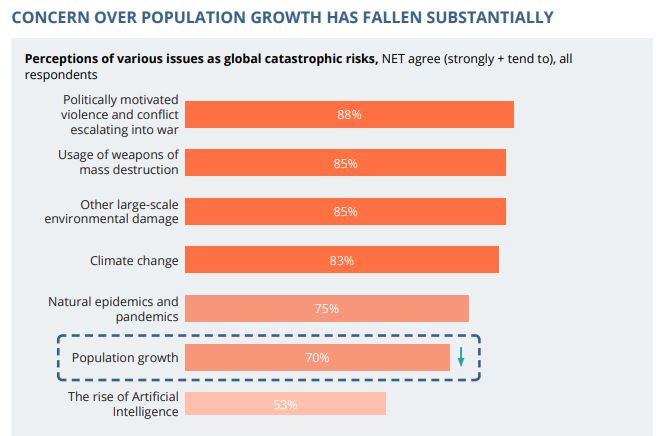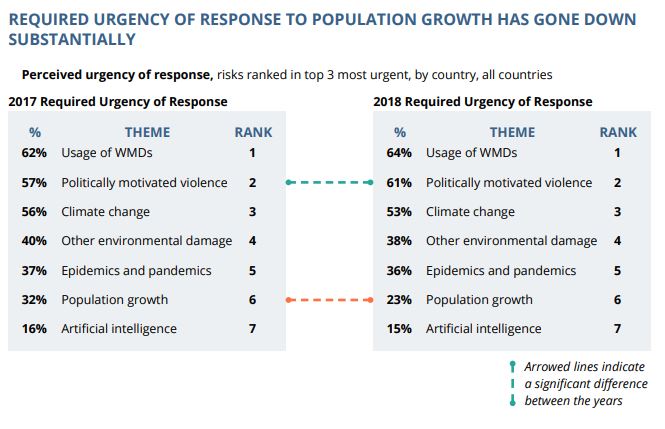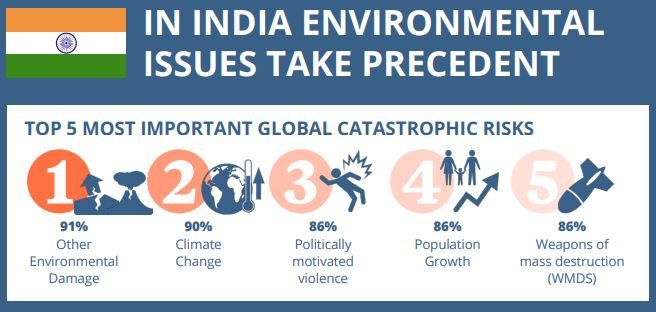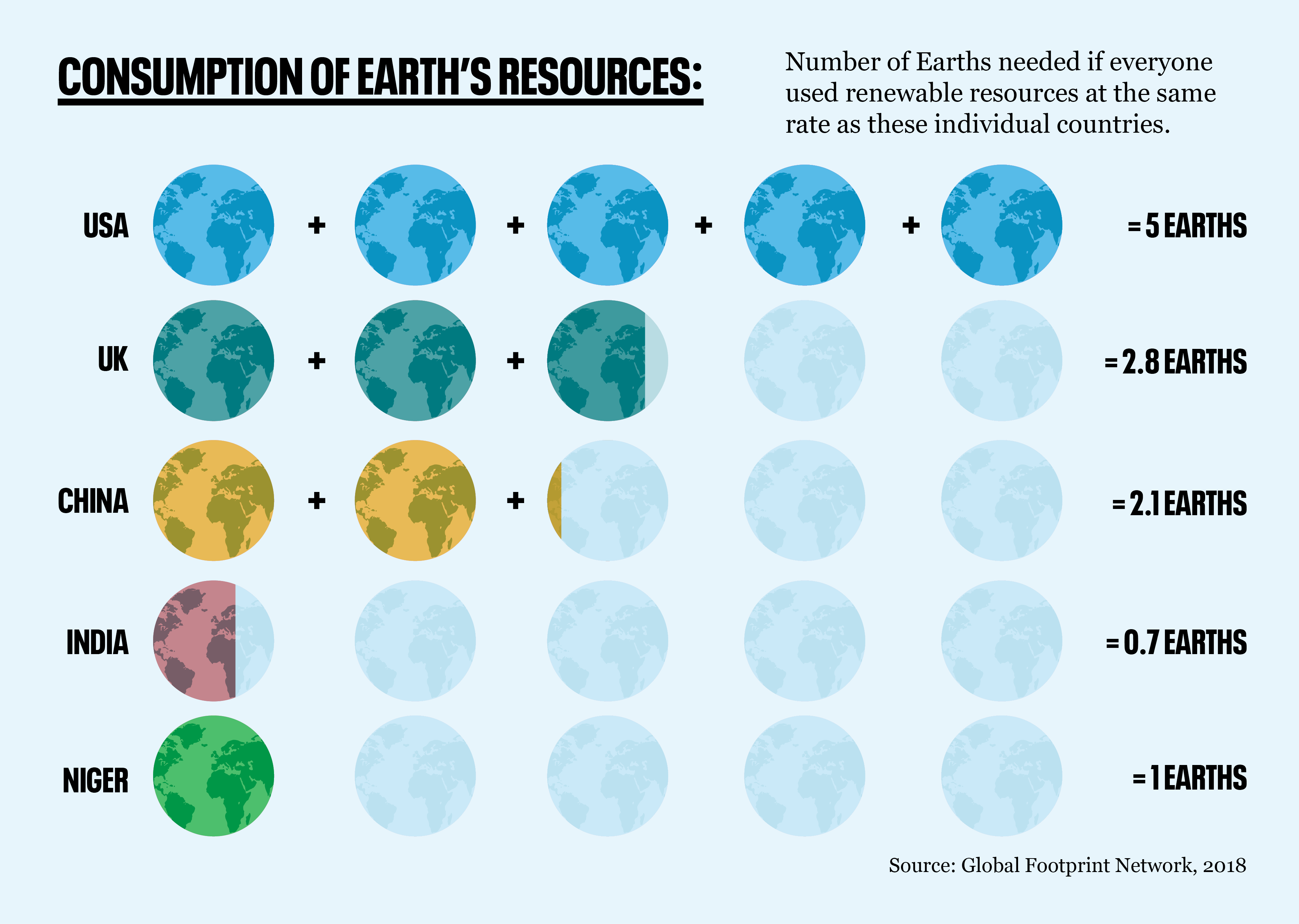
Global risks: where does population rank?
An online survey of over 10,000 adults across nine countries found that more than two thirds of respondents consider population growth a “global catastrophic risk”. However, less than a quarter believe the issue requires urgent action and just over half believe continued population growth will have “negative effects”, down from 64% in 2017. One in two people wrongly believes that there are sufficient natural resources for all humans to live like those in rich countries.
Overall, it is very positive that most people think of population growth as a threat but there is clearly still a strong need to raise awareness of the urgency of the issue.
Falling population concern
The Attitudes to global risk and governance survey 2018, a follow-up to the 2017 version, was commissioned by the Global Challenges Foundation (GCF) and is intended to assess public perception of major global issues such as climate change, conflict and population growth. Between April 2017 and April 2018, over 1,000 people aged 18-64 took part in Australia, Brazil, China, Germany, India, Russia, South Africa, Sweden, the United Kingdom and the United States.
Overall, six in ten respondents considered the world to be more dangerous in 2018 than two years ago. Politically motivated violence was thought to be the most concerning global risk, particularly among developed countries. This is understandable in light of the growing instability in Europe and ongoing conflicts in countries like Syria, Ukraine, and North Korea.
The proportion of people who consider population growth a global catastrophic risk has decreased from 80% in 2017 to 70% today and only 23% now believe the issue warrants urgent action, compared to a third of respondents in 2017.


Developing countries are more aware
Developing countries tended to be more worried than developed countries about climate change (86% vs 80%) and other environmental damage (89% vs 81%). Respondents in developing countries, in particular India and South Africa, were also more concerned about population growth. In India, population growth was ranked the fourth most important global catastrophic risk. This is unsurprising as fast-growing, vulnerable countries are more exposed to the negative impacts of overpopulation, climate change, pollution and other damage.

Only a few believe growth is good
The only country where respondents deemed the world to be more secure now than two years ago was China, where population growth has reached an all-time low. This trend was driven by millennials, which were 44% more likely to say that the world is safer now than baby boomers.
UK millennials were more likely to think that the consequences of population growth will be positive (16% vs 1% of baby boomers). Worryingly, highly educated UK adults were more likely than those with a low level of education to think that the consequences of population growth will be positive for humankind (13% vs 7%). While one in ten is not very many, this does demonstrate the damage that is being done by intentional dismissal of the problem of overpopulation. In a similar international GCF survey conducted in 2014, the public tended to consider population growth as a threat, whereas policy-makers overwhelmingly did not. In many developed countries, politicians are calling for more, not fewer, births to counter population ageing and boost economic growth.
Misconceptions about natural resources
Concern over resource shortage has also decreased relative to 2017, with almost half of respondents believing that the world’s natural resources are sufficient for all of Earth’s people to enjoy the same standard of living as in rich countries. This is a huge misconception. According to the Global Footprint Network, we are currently consuming 1.7 Earths worth of resources and would need five planets if everyone consumed as much as the average US citizen.

Governments and educational institutions are failing in their duty to raise awareness of the urgency of the environmental crisis and its link to overpopulation. Despite the severe shortage of education opportunities in developing countries, these tend to be more aware because they are more exposed to negative impacts.
It is reassuring that the strong majority of people still think of population growth as a risk, but all countries, particularly those which are affluent and sheltered from the worst effects of climate change and overpopulation, must do more to raise awareness and implement ethical and progressive measures to counter unsustainable population growth.


